
Opti Munich is a fast-growing European trade show presenting itself as a one-stop shop for everything an optician could need. Having seen growth over recent years, the show this year stretched across six halls in Munich’s Messestadt Riem and covered over 60,000 square metres of space.
Centrally located in Hall 2, the long running Opti Boxes area once again served as a incubator for new talent by hosting 14 young frame designers and start-ups. In keeping with the show’s focus on sharing across borders, the selected exhibitors hailed from France, Germany, the Netherlands, Israel, Italy, Belgium, Hong Kong and the UK.
London calling
You would be forgiven for thinking that this internationalism may have been put under strain where the UK is concerned, considering recent political developments. However the only British brand to be part of the Opti Boxes, Covrt Project, was well-received at the show, even scooping the Blogger Spectacle Award for best newcomer in the industry. The London-based frames company turned heads with its streetwear-styled sunglasses, presenting four milled steel models and three featuring an acetate construction. The futuristic look on model MP4 is achieved through bold detailing, with lenses that do not quite fill the hexagonal frames and a high double bridge. Covrt Project’s international appeal is a deliberate design feature according to the designers, with adjustable nose pads on every frame made to accommodate different shaped noses from around the world.
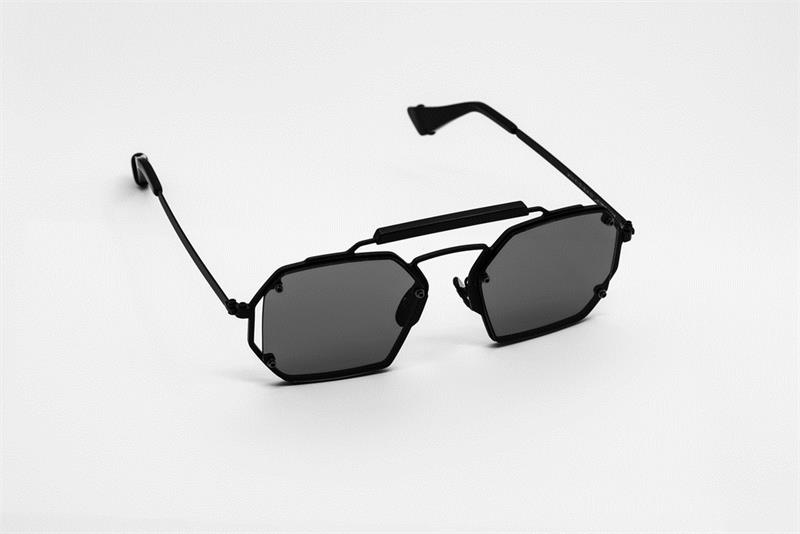
Covrt Project's MP4 frame
Each Covrt Project frame is accompanied by a stylish black cross body bag. Able to be worn across the shoulder or around the waist, the bag is modular, with the straps detaching to make a clutch and a smaller pocket detaching to create a simple frame case.
Dutch company LookAdd also caught the attention of attendees at Opti. Initially the brand’s offerings appeared to be relatively pedestrian, although admittedly colourful, frames. However, as designer Kamiel Koudijs demonstrated, this impression belies an innovative vision. LookAdd offers its customers a selection of nine basic frame shapes, which can then be supplemented with an extensive range of colourful magnetic frame covers. Koudjis explained this idea was based on the concept of a two-stage rocket and allows people to choose a different pattern and/or colour every day. Every frame is built for the user-friendly magnetic covers, with slightly protruding lenses and simple temples that emphasise the rims. Affordability is also a focus of the brand, with magnetic covers maxing out at around €20; meaning having multiple covers is an affordable option for many wearers.
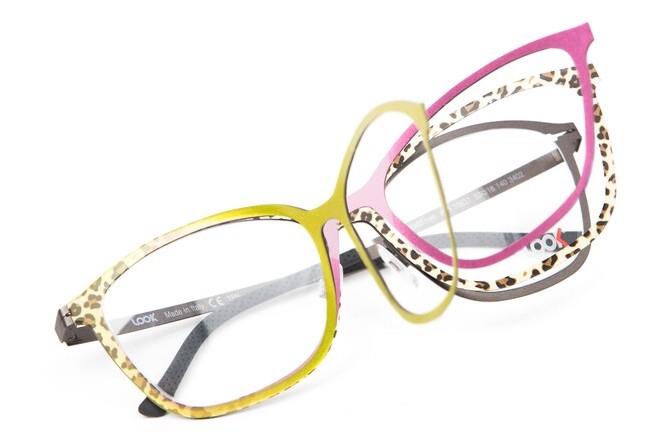
LookAdd frames with magnetic covers
International cooperation
Annu was founded by a group of international designers who came together to create a simple offering focused on modularity, functionality and waste reduction. The brand is based in Nuremberg, but its German staff were joined on stand by Dutch, Israeli, Italian and Belgian colleagues. All rims are 3D printed using the latest additive manufacturing techniques, producing a finished product weighing just four grams and minimising waste as well as fuel needed to transport the product. Annu require that practices order at least 20 frames, but offer the ability to provide patients with a bespoke dispensing experience. Screwless titanium temples of varying lengths can be clipped into any frame with a provided Annu branded tool while nose pads of increasing sizes can be attached to adjust how the frames sit on the face. Tailored bridges are also available to order, with narrow or wide options available alongside the standard option. The kit provided with frame purchases is aesthetically presented, and the on-stand team demonstrated just how quickly frames can be adjusted for fit. The minimal frame designs are complemented by a series of muted colourways, with functionality and design at the forefront of how these innovative frames present on-face.
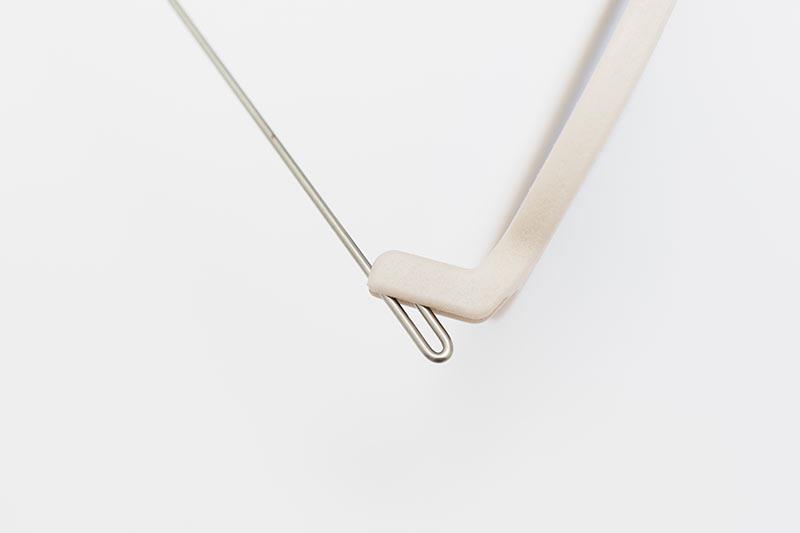
WeAreAnnu's screwless hinge
Natural materials and design philosophy were the focus for Unsuikyo, a frames brand from Hong Kong-based designer Brian C. Coherent, naturalist design was evident in the frames, which utilise stone and wood in tandem to create a surprisingly light and unusual offering. All frames are hand assembled and polished from carefully selected stones, while wood waste is kept to an absolute minimum through appropriate carving methods. Mixed Shimmer C1 is part of the Mixed Clip line showcased at Opti and features butterfly green granite sourced from Jiangxi. The stone is prominent yet subtle, with every frame unique because of the stone’s natural colouration. Light gold tinted clip-ons are also included as standard, effectively allowing the frame to be turned into a prescription sunglass. Temple tips, which become transparent in certain lights to reveal the brand’s stag logo, are the only visible branding on these frames.
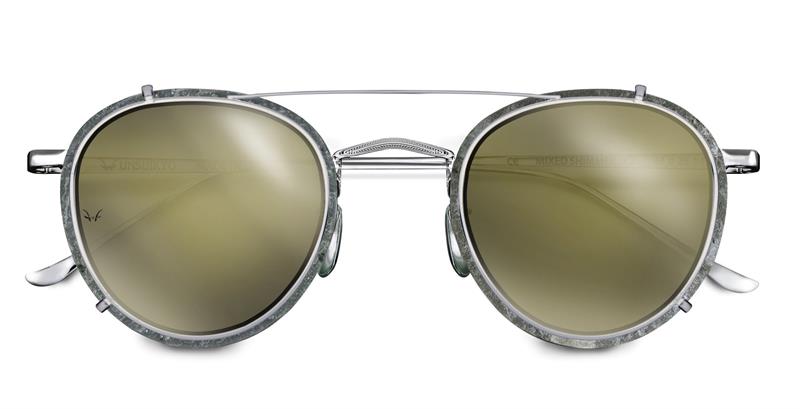
Unsuikyo's Mixed Shimmer C1
Mining the past
Innovation is not always about the brand-new, something demonstrated by French company Alf. Founded by two brothers, Alf seeks to take advantage of the timeless silhouettes of the period between 1920 and 1960 by bringing to market high quality versions of true classics. Alf’s collection of prescription frames and sunglasses uses high-quality Japanese acetate and mineral lenses, materials which are given prominence by the simplicity of the frame design. Designed in Paris and manufactured in Normandy, every Alf frame has red thread woven into the temple tips, relying on this simple detail as the only branding.
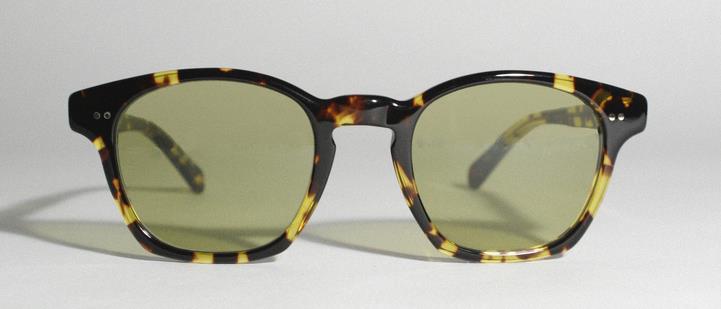
ALF 's wayfarer-shaped sunglasses
Overall the Opti Box area was impressive, with none of the stands presenting anything short of quality. Each one of these new company’s offerings are worth keeping track of, as an endorsement from Opti Munich’s Opti Boxes feature means they are well on the road to success.
